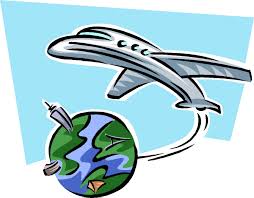How Much Does a Trip Around The World Cost?
Last Updated on February 26, 2024
Written by CPA Alec Pow | Content Reviewed by ![]() CFA Alexander Popinker
CFA Alexander Popinker
Dreaming of embarking on an extraordinary journey, circumnavigating the globe, and immersing yourself in diverse cultures? If this aspiration resonates with you, understanding the potential costs is crucial.
Traveling the world is an exhilarating yet financially significant undertaking, and being informed about expenses can make the difference between a seamless adventure and an overwhelming financial burden.
This article goes into the costs associated with a trip around the world, equipping you with the knowledge to plan and budget effectively for your globetrotting escapade.
How Much Does a Trip Around The World Cost?
Backpacking worldwide often represents the most cost-effective approach, sometimes costing no more than a few thousand dollars, relying on budget accommodations, local transportation, and modest dining options.
On the other end of the spectrum, luxury world cruises provide opulent amenities and convenience but come with a substantial price tag, ranging from $30,000 to $200,000+ per person.
The Budget Traveler suggests that a trip planning service called AirTreks indicates costs between $20,000 to $30,000 for a basic budget, while a luxurious trip can reach up to $60,000 to $150,000 per person for shorter durations.
Airtreks itself provides information on round-the-world (RTW) trips, stating that the general consensus among travelers is that a year on the road typically costs between $20,000 and $30,000, although this figure can increase significantly for high-end travel experiences.
Bemytravelmuse reports that a budget-conscious couple can expect to spend around $300 per day, equaling roughly $150 per person per day.
Alternatively, you can craft a self-planned global tour, meticulously designing your itinerary and accommodations to strike a balance between comfort and affordability. Many factors, such as travel duration, destinations, and desired experiences, will shape the overall cost.
Breaking Down the Expenses
Transportation: International flights and overland travel typically constitute the most significant expense. A round-the-world air ticket can cost between $1,500 and $10,000+, depending on the number of stops, routing, and airline choices. Budget airlines often provide cheaper options, but scheduling and routing may be less flexible.
Accommodation: Accommodation costs can vary widely based on your preferences. Hostels may cost $10-$30 per night, while mid-range hotels can range from $50 to $150+. Short-term rentals like Airbnb often offer more affordable options for longer stays.
Food: Dining expenses are highly dependent on your choices. Eating at local eateries and street food vendors can be very economical, costing $10-$20 per day in many destinations. Indulging in fine dining and alcoholic beverages will substantially increase your food budget.
Activities and Excursions: Entry fees for attractions, guided tours, and adventure activities can quickly add up. Budgeting $50-$200 per day for activities is reasonable, depending on your interests and the destinations you visit.
Visas and Vaccinations: Visa fees and travel vaccinations should be factored into your budget, as these costs can vary significantly based on your nationality and travel destinations.
Travel Insurance: Comprehensive travel insurance is essential for any extended trip. Expect to pay between $500 and $2,000+ for a policy covering medical emergencies, trip interruptions, and other unforeseen events.
Budgeting for Your Trip
Creating a comprehensive travel budget is crucial for a smooth and financially sustainable journey. Start by estimating costs for each destination based on your desired travel style. Utilize online cost estimation tools and budgeting apps to assist in this process.
Implement savings strategies, such as setting aside a fixed amount each month or reducing discretionary spending. Consider opening a dedicated travel savings account to earmark funds for your world tour.
Funding Your Trip
Beyond personal savings, crowdfunding platforms like GoFundMe or Kickstarter can help raise funds from friends, family, and strangers who support your travel dreams. Working while traveling, either remotely or by taking on temporary jobs, can supplement your funds and extend your journey.
You might also like our articles about the cost of doing the Great Loop, moving to Japan, or getting a Travel Agent.
Additionally, explore travel scholarships and grants offered by educational institutions, non-profit organizations, or government programs, which can provide financial assistance for meaningful travel experiences.
Saving Money on the Road
Embrace budget accommodations like hostels, camping, or couchsurfing to minimize accommodation costs. Opt for local transportation, such as buses, trains, and ride-sharing services, instead of taxis or private transfers.
Eat like a local by frequenting street food stalls, markets, and inexpensive eateries. Cook your own meals when possible, and take advantage of free activities like hiking, exploring parks, and attending cultural events.
Unexpected Expenses
 Despite meticulous planning, unforeseen circumstances can arise during extended travel. Allocate a contingency fund of 10-20% of your overall budget to cover potential emergencies, medical expenses, or other unanticipated costs.
Despite meticulous planning, unforeseen circumstances can arise during extended travel. Allocate a contingency fund of 10-20% of your overall budget to cover potential emergencies, medical expenses, or other unanticipated costs.
Travel Insurance
Comprehensive travel insurance is a crucial safeguard against financial setbacks due to medical emergencies, trip cancellations, or lost/stolen belongings. Shop around for policies that provide adequate coverage at a reasonable cost, and carefully review the policy details to ensure you understand the inclusions and exclusions.
Post-Trip Financial Planning
As your world tour concludes, develop a plan to manage your finances upon returning home. Assess your remaining funds and prioritize expenses such as rent, utilities, and outstanding debts. Consider temporary employment or freelance work to supplement your income while transitioning back to a more settled lifestyle.
Final Words
Embarking on a trip around the world is a life-changing experience that requires careful financial planning and budgeting. By understanding the various costs involved, exploring funding options, and implementing cost-saving strategies, you can make your dream of global travel a reality.
Remember, the journey itself is priceless, and with diligent preparation, you can create unforgettable memories while managing your finances responsibly.
Frequently Asked Questions
How much does it cost to fly all the way around the world?
The cost of a round-the-world air ticket can vary significantly depending on factors such as the number of stops, routing, airlines, and travel dates. On average, you can expect to pay between $1,500 and $10,000+ for a round-the-world ticket.
Budget airlines and flexible travel dates can help reduce costs, while more direct routing and premium airlines will increase expenses.
How do I budget for a trip around the world?
Budgeting for a trip around the world involves several key steps:
- Estimate costs for each destination based on your desired travel style, considering accommodation, transportation, food, activities, and incidentals.
- Use online cost estimation tools and budgeting apps to assist in creating a comprehensive travel budget.
- Implement savings strategies, such as setting aside a fixed amount each month or reducing discretionary spending, to accumulate funds for your trip.
- Explore funding options like crowdfunding, working while traveling, or applying for travel scholarships and grants.
- Allocate a contingency fund (10-20% of your overall budget) to cover unexpected expenses during your travels.
- Regularly track and adjust your budget throughout your journey to ensure you stay within your financial limits.
How much does a trip to Europe cost for 3 weeks?
The cost of a 3-week trip to Europe can vary greatly depending on your travel style, destinations, and preferences. Here’s a general estimate:
- Accommodation: $50-$150 per night for mid-range hotels or Airbnb rentals
- Transportation: $300-$800 for flights within Europe and local transportation
- Food: $30-$60 per day for a mix of local eateries and occasional restaurant meals
- Activities and Attractions: $200-$500 for entry fees, guided tours, and excursions
- Miscellaneous: $500-$1,000 for incidentals, souvenirs, and emergencies
Based on these estimates, a 3-week trip to Europe could cost anywhere from $3,000 to $8,000 per person, depending on your specific choices and travel preferences. Remember to factor in additional costs like travel insurance, visas (if required), and any pre-trip expenses.


Leave a Reply
Want to join the discussion?Feel free to contribute!